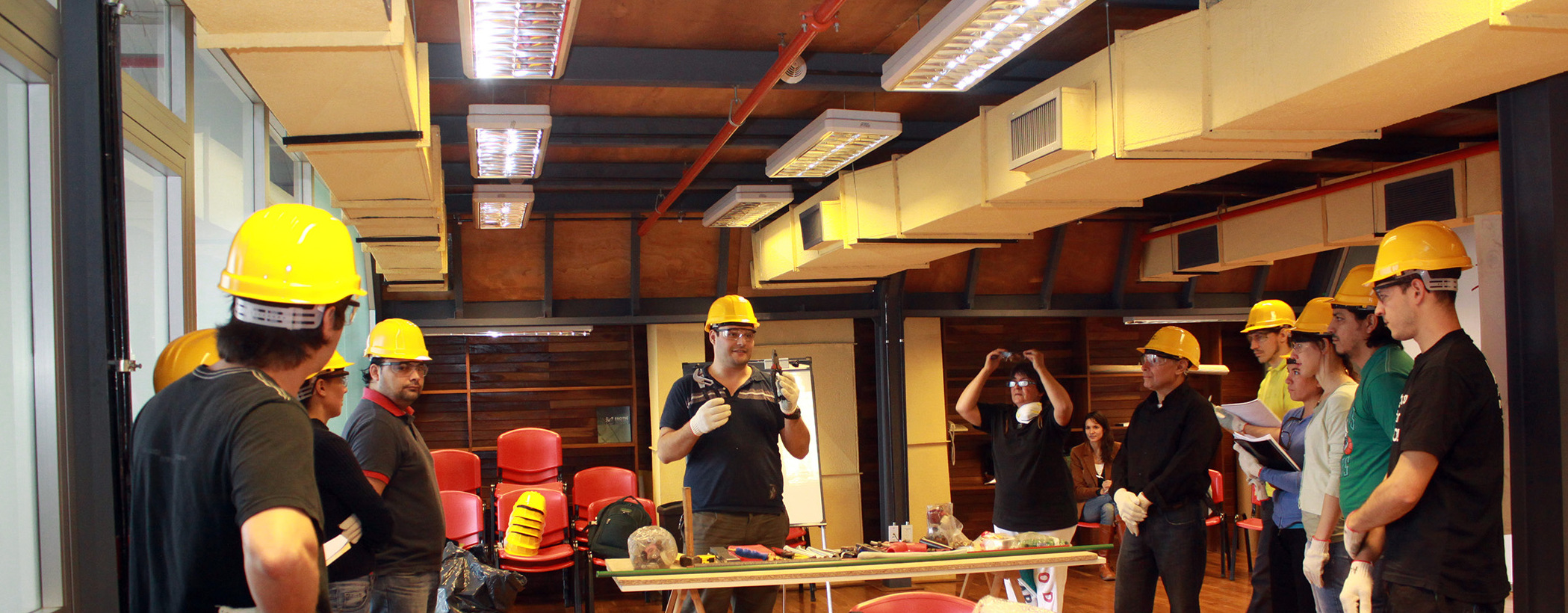
<p>Actions for the transformation of the productive sector toward a sustainable economy</p>
A green economy is broadly defined by low carbon emissions, efficiency in the use of resources and social inclusion. Through the Green Economy Center, Buenos Aires is encouraging the generation and formation of green jobs and leading investigation into industry’s environmental requirements. It is also promoting technical and economic/financial synergy between the public and private spheres, developing new proposals for production sectors.
Overall Objective
To promote the transformation of the City of Buenos Aires’ manufacturing sector into a sustainable economy by generating and promoting green jobs; researching industry’s environmental requirements and the technical and economic/financial synergy between the public and private sectors.
Specific objectives
- Determine the present environmental status of the manufacturing sectors, identifying their main strengths and weaknesses.
- Determine the transformation potential of the manufacturing sectors, identifying opportunities and threats.
- Create and coordinate a space of exchange between the public and private sectors to jointly seek environmental solutions.
- Promote pilot projects such as good practice laboratories.
- Foster green jobs.
Direct beneficiaries:
- actors and participants of production processes that exist in the city (business sectors and workers).
- inhabitants of neighborhoods close to areas of heavy industrial concentration.
Indirect beneficiaries:
- the whole of the population of the city of Buenos Aires (2,891,082 people according to the 2010 census) and people on the city’s edges
Beneficiaries of the international cooperation:
- partnership with Sao Paulo and Mexico City.
- Study on the needs for incorporating green processes and technologies in the City
- Meetings with business leaders
- Pilot projects
- Incorporation and assimilation of new clean technologies
- Green jobs
- Analysis and proposals for adapting regulations.
Expected results
Working documents on:
- Result of research into the needs of the city’s industries aimed at converting the production processes under sustainable environmental criteria.
- Possibilities of the technological transformation of economic activity; technology transfers from and to the rest of the world; new environmental legislation.
- Plausible economic and financial instruments that can be applied to the local manufacturing sector.
- Action plan to reconvert production processes based on a previous diagnosis.
- Space of exchange between businesses in the city of Buenos Aires and businesses in the rest of the world.
- Environmental pilot projects in conjunction with civil associations, the private sector, the academic sector and other public-sector entities.
- Lists of green jobs aimed at socially and economically vulnerable young people.
- Coordination between the Environmental Protection Agency of the Department of Environment and Public Space, the Department of Economic Development, the City Bank and the Directorate-General for International Relations and Cooperation, all within the Government of the Autonomous City of Buenos Aires.
- Collaboration and transfer of experiences with Latin American cities such as Sao Paulo and Mexico City.
Sponsor Entity
The creation of the Green Economy Center is an ambitious project by the City of Buenos Aires to advance toward a sustainable economy within a framework of public-private collaboration that fosters the generation and formation of green jobs.
This initiative also involves an agreement with Sao Paulo and Mexico City to collaborate and transfer this experience, which means its projection can be expanded across the region.
Thanks to the project’s hands-on approach, with a number of outcomes expected in around two years after it starts, the experience can become a reference point for other similar cities in the region and can be promoted internationally by Metropolis and the collaborating institutions.
